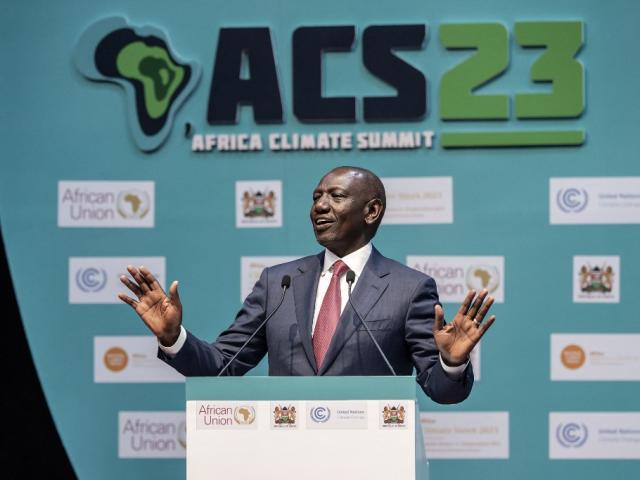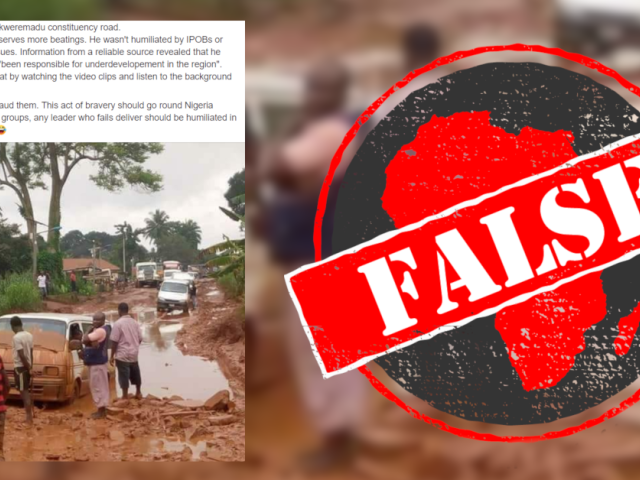-
The Federal Road Safety Corps only has data on the number of road deaths since 2015, the same year the APC took power, and it shows that the number of fatalities increased yearly to 2018 before dropping in 2019 and 2020. They rose again substantially in 2021.
-
Both the roads agency and a transport expert told us that better roads don’t automatically mean fewer deaths.
-
Speeding and other driver behaviour, including drunk driving, may contribute more to road fatalities than poor road conditions.
With Nigeria’s next general elections scheduled for February 2023, Bola Tinubu, a prominent leader in the ruling All Progressives Congress (APC), threw his hat in the ring when he visited president Muhammadu Buhari in January 2022.
After the closed-door meeting, Tinubu told journalists he had spoken to Buhari of his lifelong presidential ambitions. If elected, he said, he would build on the president’s achievements, such as better roads.
Tinubu claimed that “the carnage of dying in motor vehicles is reducing”, even as he called out Nigerian drivers for not complying with the law.
He said better infrastructure was one way the APC government was reversing the failures of the past, a reference to the Peoples Democratic Party, in power until 2015.
But does the available data on road crashes in Nigeria support Tinubu?
Numbers of deaths dropped in 2019 and 2020, but rose in 2021
We contacted Tinubu’s office for the evidence for the claim and will update this report when we hear back.
Data on road crashes is collected by the Federal Road Safety Corps (FRSC), a national government agency. The most recent data on its website covers the third quarter of 2021, while the oldest is from 2015.
The APC has been in office since 2015. Since then, the number of deaths from road crashes in Nigeria has fluctuated between 4,300 and 5,500.
The FRSC data shows that the number of people killed in road crashes was 5,053 in 2016, 5,121 in 2017 and 5,181 in 2018. Deaths then dropped to 4,609 in 2019 and 4,382 in 2020.
Bisi Kazeem, the FRSC’s national spokesperson, told Africa Check that the drop in 2019 may have been due to a public campaign by the agency that year which sought to reduce fatalities by 25%.
He attributed the drop in 2020 to the restriction in movement due to the Covid-19 pandemic. As such, “it is expected that with that lowest level of vehicular movement, [deaths] data would be low”, Kazeem said.
Kazeem said that from January to November 2021 there were 11,672 road crashes and 5,444 deaths, well above those for all of 2020 – and the four years before.
Olabisi Sonusi, the FRSC’s Lagos command spokesperson, told Africa Check that demonstrations against police brutality, known as #EndSARS protests, also affected traffic in the economic capital and in other cities.
Despite government initiatives, some deaths still unrecorded
The road agency says it collates data from field operatives, the police, hospitals and from a volunteer programme it has been running, known as the National Community Post-Crash Care Initiative. Under the programme, FRSC officials show community volunteers how to be first responders after road crashes.
Sonusi said the FRSC’s Lagos command also gets crash data from the Lagos State Traffic Management Authority, which manages traffic and seeks to reduce road accidents in the state. Lagos accounts for an estimated 5 million of the 11.8 million vehicles in Nigeria.
Some crashes do go unrecorded, especially when there are no casualties, according to Kazeem.
“Also, it is possible to have crashes in remote areas and the victims are taken to the local clinics but because the FRSC's operatives are not within such communities, they will go unrecorded,” he said.
The agency has therefore created desk offices in the country’s local government areas to improve data collection. The station officers both inform the public about safety and collect data.
No direct correlation between better roads and fewer accidents
It is inaccurate to say that better roads lead to fewer crashes and deaths, Callistus Ibe told Africa Check. He is a professor of transport management technology at the Federal University of Technology Owerri in southeast Nigeria.
“There is no direct correlation between better roads and fewer road accidents. When the driver knows that the road is bad, he or she is more likely to slow down and the risk of a fatal accident is reduced,” Ibe said.
He gave two main reasons for Nigeria’s increasing accident rates: speeding and the mechanical condition of vehicles.
“Many of the vehicles on our roads are not roadworthy. So, I don’t quite agree that there would be fewer deaths from road accidents when the state of our roads improves,” he said.
Kazeem said the FRSC often says that good roads cause accidents too and has campaigns focused on speeding, with slogans such as “speed thrills, but it kills”.
Ibe gave driver attitude as another key factor for crashes in Nigeria, which the FRSC agreed with.
Kazeem said: “The fact is that roads, whether good or bad, do not have a dominating effect on crashes even though they contribute. The point is that the driving culture is a determinant factor in crashes.”
He said that from the FRSC’s research, awareness campaigns were having a positive effect on the behaviour of drivers, despite there being more cars on the road.
Kazeem also said poor weather conditions and drunk driving contributed to crashes.
Conclusion: APC leader’s claim about road carnage is hit and miss
Bola Tinubu, a leader in Nigeria’s ruling APC party, claimed that deaths from road crashes were reducing due to better roads. He attributed the improved infrastructure to the APC government.
Data from state agency the Federal Road Safety Corps shows an increase in deaths from 4,300 in 2015, when the APC took office, to 5,131 in 2018. Fatalities dropped in 2019, which the FRSC attributed to a public campaign, and in 2020, due to lockdown restrictions.
But deaths in the first 11 months of 2021, at 5,444, were already higher than all previous years compared. Both the roads agency and a transport expert told Africa Check better roads do not have a notable effect on fatalities.
Tinubu was on firmer footing when he singled out driver behaviour as a factor in the number of fatalities. However, his central claim that fatalities are reducing is simply not borne out by the data. We therefore rate him as incorrect.








Add new comment